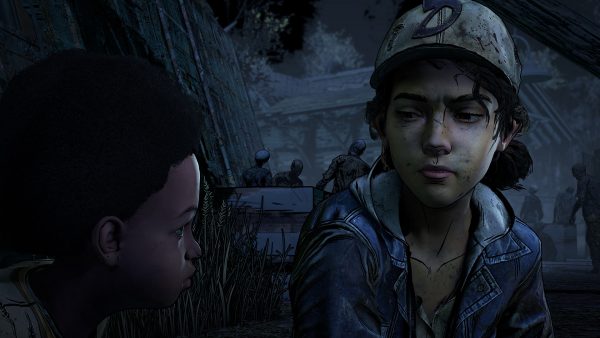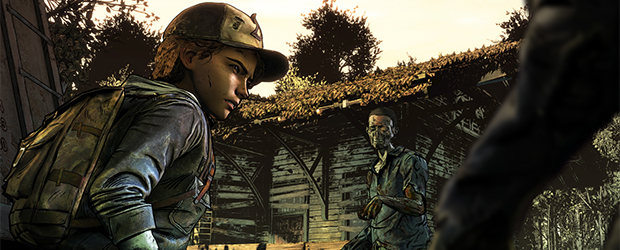Switch to: German
Whether you like story-driven adventure games or not, you probably heard about Telltale Games at least once in your life. Specialized in point-and-click adventure games, their name never was that big in the eyes of the public until they did an experiment that proved to be incredibly succesful.
I’m talking, of course, about the first season of The Walking Dead: the emotional story of Lee Everett and what would be the beginning of Clementine’s story will always be in the heart of the gamers around the globe for the great storytelling and the impact it had on adventure games. It’s undeniable that The Walking Dead is what truly changed the public’s perception of adventure games. Now Telltale was not obscure anymore, but began to be looked and admired by most companies and games taking heavy inspiration from their works. And perhaps this success is what, ultimately, caused Telltale Games’ demise. Unless you lived under a rock for the last weeks, the word has probably arrived to you: Telltale Games is shutting down. The upcoming projects (The Wolf Among Us 2 and Stranger Things) have been cancelled and the barebones staff that remained is only working on the Minecraft project for Netflix, as they had a deal that they need to still fullfill. But how did it come to this? How could a beloved (for the most part) studio like Telltale Games be forced to shut down after they made such an impact? Well, let’s slow down, take a deep breath and try to analyze their history.
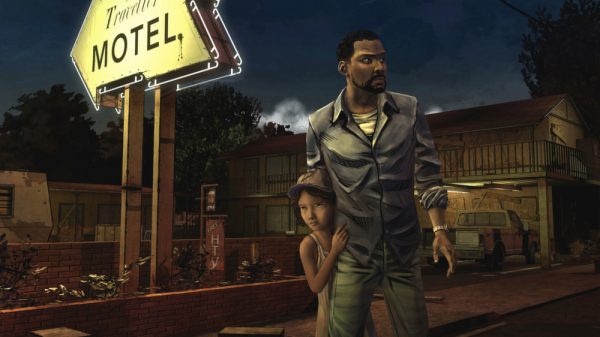
Telltale was a company that, yes, more often than not relied on other studios’ Intellectual Properties (IPs) to expand on them, but was also willing to take some risks and experimenting new ideas. For example, have you ever heard of the “Puzzle Agent” games? I thought not. They are, like you would suspect, puzzle games but with a great humor behind them. Not that great, but they still have their charm. Or how could anyone forget about Sam & Max, the point and click adventure games? Of course, there were some mistakes along the time, that most people are trying to forget (did you remember that they did a Jurassic Park game too? Me neither, until I started writing this piece) but, for the most part, they seemed like a great and unique team that everyone couldn’t help but secretly admire. Then, as mentioned above, their The Walking Dead game came along, taking the world by storm and being the real turning point for Telltale Games. At this point, the staff realized that games like these could be the future: they finally hit the jackpot. They only had to specialize in doing this kind of games and nothing could go wrong… right? Well, right after The Walking Dead came The Wolf Among Us. Despite the title that may catch you off guard it’s, once again, based on an existing IP, the comic named Fables (by the way, go and read it because it’s worth it). The game was beloved by everyone who played it but, in the end, that did not translate to sales. Again, this was a major turning point for the history of Telltale Games. Let’s analyze their first 2 games in this new format: both of them are beloved, but only one of them sold well. And do you wanna know why? Because not only it was an innovative idea at the time, but it was based on what was (and still is) a super popular show (yes, I know that the game itself is inspired by the comics, but that’s not the point I’m trying to make here). At the same time, not only The Wolf Among Us wasn’t a recognizable name, but the game wasn’t even based on a popular IP, because Fables had always been an underground comic, obscure to the eyes of the masses. And that’s where, I believe, things started to go south.
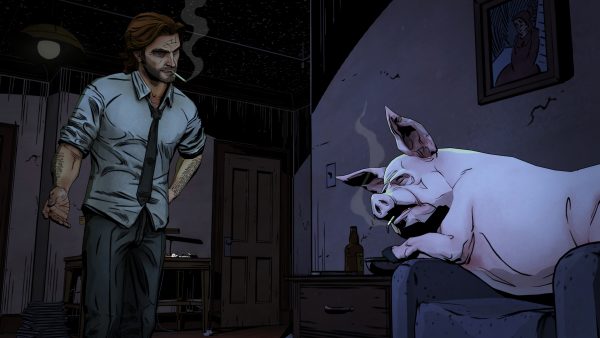
The key to success was simple, how could they not see it before? You don’t need to grab IPs just because you can. You need to focus on popular ones, and the money will flow. It’s simple, brilliant and efficient. That’s what the heads of TTG must have thought at the time, I gather. And it’s not a coincidence that after The Wolf Among Us came (yep, you guessed it) The Walking Dead: Season Two. While still a good game on its merits, the game didn’t feel as polished as the first season and, most of the time, just looked like a rehash of the same characters and concepts the first game had, but lacking the good storytelling that Telltale had. The game still managed to sell well enough, becoming soon enough Telltale’s most recognizable IP. I’m gonna address this other issue later, for now just keep this notion in mind. Then came Tales from the Borderlands, a game that managed to capture the humor and the spirit of Borderlands perfectly, while also keeping the storytelling charm that the company is known for. Now it seemed as they had found the right formula, but were still looking to repeat the great success The Walking Dead had. Remember how I said that it was based on a super popular show? Now thinking about it, what’s the most popular show of which everyone’s waiting the conclusion for? That’s right, it was Game of Thrones (GoT). And Telltale just had to get their claws on it and expand it. The potential was there, we can all admit that. At the same time, it’s no surprise that so few people actually remember this game. Because ultimately it was disappointing and a storytelling mess: even though you had important choices, you could feel that there was a pattern that the storytellers already thought of, and once you try and change things, everything starts to make less sense and to fall apart. Overall, I believe that GoT is the most wasted opportunity that this studio had. And considering the success of the show, it did not help either for what was about to come.
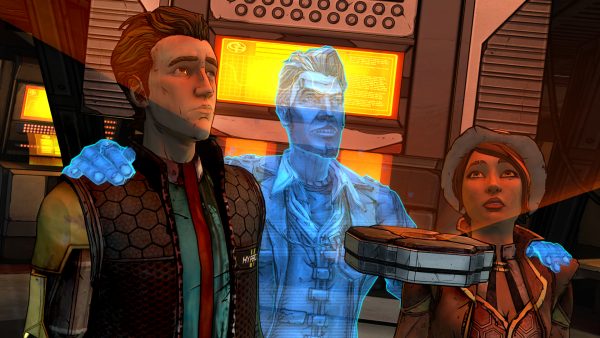
Because you see, this is the point where the idea was getting old. Telltale was starting to become a huge meme and people started to see the “Choices matter” motto for what it was: a lie. Because most of the time, these choices didn’t really matter. The story was already written, clear as day, and a few changes here and there wouldn’t make a difference in the end. This is where people started to become skeptical of Telltale’s way of doing games. Minecraft: Story Mode became a huge success, but it did not pretend to be what the other games were and headed in a whole different direction. A success which, eventually, led them to a deal with Netflix which didn’t quite go as expected. But I’m kind of jumping the shark here, so let’s take a step back once again. Creating Minecraft: Story Mode took all of Telltale’s ressources in 2015, and that’s another problem along the line. The “hardcore” fanbase couldn’t care less about Minecraft. They wanted a return to the roots. More specifically, they wanted more The Walking Dead. We’ve now come into 2016, which is probably the point in time where Telltale finally began to start falling apart with disappointing games and sales. The Walking Dead: Michonne was a spin-off and didn’t actually continue the history TTG was writing up until then, focusing on a major show character. Ironically, that didn’t translate well with fans. They wanted more Clementine, and couldn’t care less about the show itself. The game was also not very good anyway. Batman: The Telltale Series also felt like a huge wasted potential: while better than GoT (not that much effort was necessary), it was still not enough to keep the fans believing. Still, there’s so much more to explore in the Batman universe that a second season would feel almost natural, so naturally that’s what happened in the shape of Batman: The Enemy Within. But more on that later. The last game of the year was the long awaited third season of The Walking Dead dubbed A New Frontier (yep, 2 games in a year). Most people would say that this season was what ultimately killed Telltale. I’m inclined to agree with them, but I think what it did was only delivering the final blow. Telltale, as you could see, wasn’t in exactly good waters for quite a while.
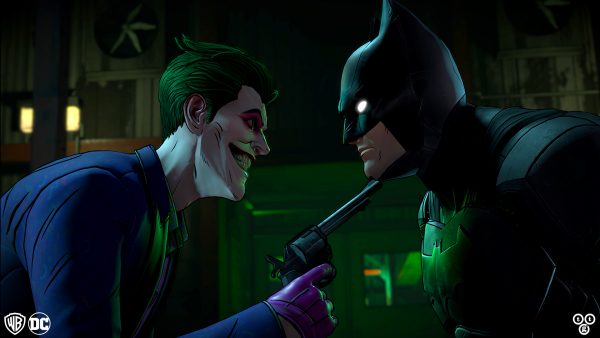
Remember how people couldn’t care about Michonne because they wanted more Clementine? Well, that’s what they got in Season 3, but with a catch: her story would basically go nowhere and she’d just stand there as a supporting character. It’s very clear that she only appeared there because they wanted to please the fans and just wanted to work on something different. Ironically, this only made them more angry. Now we’re almost at the end of their journey, with Guardians of the Galaxy once again proving what the problems of this studio are and that just utilizing a popular IP isn’t good enough. Again Minecraft: Story Mode Season 2 expanded on what the first season did but, like I said, had a different goal in mind. Season 2 of Batman is where Telltale finally started to listen to their fans. Depending on your choices (actually it’s just one that really matters in the end, but the point is that the illusion of choice works, like it did in the first season of The Walking Dead) you can determine who the Joker will become. The storytelling is brilliant and well done, and overall I think that this season is truly a miracle, especially considering what the first season was and what would happen next… Telltale announced that, by fan demand, Bigby Wolf would return in The Wolf Among Us 2 in 2018. Then it got postponed to 2019. That was the first warning sign that we chose to ignore. 2018 came, and the first episode of The Final Season of The Walking Dead was released. Again, the premise was great and it truly showed that they tried fixing their mistakes: great storytelling, acting and a feeling that you would truly determine AJ’s fate. In Batman you felt responsible for what, in the original canon, is the great nemesis of the Dark Knight, here you feel actually responsible for a little kid’s future in an apocalyptic world. And it works, greatly. And we’re finally in the current day.
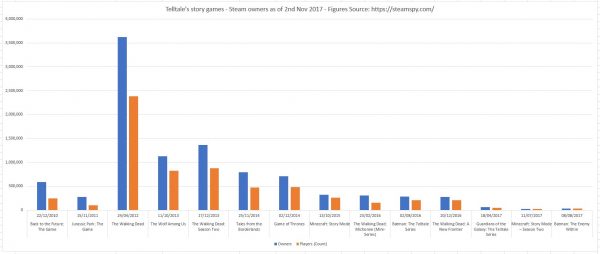
Almost the entirety of Telltale is gone, and what remains will just focus on delivering the Minecraft: Story Mode for Netflix as promised. After that, they will shut down. This also meant no more episodes of The Walking Dead: The Final Season after Episode 2. The Season Pass was, in fact, pulled off the Steam Store and isn’t available for purchase anymore. Telltale still said that they’re working on a solution on delivering these final episodes with potential partners. And this is where things start to suck. I’d like to see Clementine’s story completed like everyone else that loved these game, but not at the cost of kicking the developers in the butt. Telltale apparently didn’t pay them extraordinaries and not even the severance after they were fired. And now they want to complete it with other partners? Not cool, Telltale. Not cool at all. Overall this looks like a political nightmare. It’s sad to see what once was a great company go out this way and I wish the former developers and voice actors the best for their future. They deserve it. No matter what happens for this season, I’m sure of one thing. Clementine didn’t deserve this ending. She didn’t deserve to have her adventure forever associated with this disaster.
